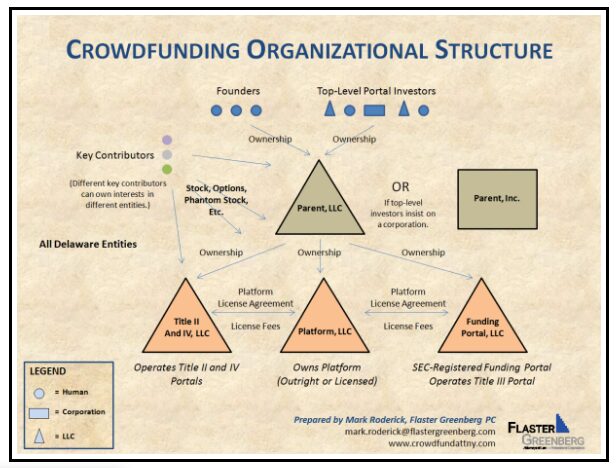Regulation CF has opened up exciting opportunities in the world of real estate crowdfunding. This regulation allows small businesses and startups to raise funds from everyday investors through online platforms, making real estate investments accessible to a wider audience. Real estate crowdfunding under Regulation CF offers investors the chance to diversify their portfolios with smaller investment amounts and provides developers with an alternative source of capital without the need for traditional financing.
To navigate the world of real estate crowdfunding under Regulation CF, investors should carefully research platforms and projects, diversify their investments, and understand the risks involved. Developers looking to raise funds through real estate crowdfunding should ensure compliance with Regulation CF requirements, provide transparent information to potential investors, and actively engage with the crowdfunding community.
What is the JOBS Act?
The JOBS Act was signed into law by President Barack Obama on April 5, 2012. This legislation expanded the ways companies can raise capital and eased many of the regulatory burdens smaller businesses faced.
The JOBS Act allowed companies to raise capital via crowdfunding and outlined Regulation A, which enables companies to offer stock without having to go through federal securities law and through the Securities and Exchanges Commission (SEC). This made it easier for firms to offer equity stakes in real estate projects.
Previously, only accredited investors were able to invest in projects and companies not listed with the SEC through Regulation D Rule 506(c). By definition, accredited individuals have a net worth of more than $1 million or an annual income of at least $200,000 over the past 2 years. The JOBS Act, changed this and allows nonaccredited investors to become involved in projects they were once excluded from.
What is Regulation CF Crowdfunding?
Regulation CF is also known as Title III of Regulation A+. These regulations were added to the JOBS Act in 2016 and allow companies to essentially raise money by selling stocks to an unlimited number of investors up to a certain amount and over a set timeframe. Previously, this figure was at $1 million, but from March 2021, businesses will be able to raise up to $5 million from anyone and maintain an unlimited number of investors.
This development is significant, especially for real estate companies that need to access large pools of capital to purchase properties. It’s also a lot easier for businesses to get approved for Reg CF crowdfunding versus other types of campaigns — such as venture capital or initial public offerings (IPOs).
It also allows nonaccredited investors to get involved with crowdfunding deals. And while the rules and requirements for hosting crowdfunding campaigns are significantly less stringent than other forms of fundraising, certain regulations still apply.
As with any type of investing, there is always an element of risk. The SEC sees nonaccredited investors as more prone to risk than accredited investors, who typically have the funds, knowledge and experience. As a result, the SEC limits nonaccredited investors in how much they can invest into a crowdfunding campaign during any 12-month period. This limitation depends on the investor’s net worth and income.
Investors are limited to $2,000 or 5% of their net worth if their net worth is less than $100,000. If their net worth is greater than $100,000, no more than 10% of their net worth can be invested for up to a max of $100,000. Investors also are restricted from reselling shares for the first 12 months.
Why Should You Invest in Real Estate?
Real estate can be a great investment because of the potential for passive income, stable cash flow, appreciation and portfolio diversification. The real estate market typically doesn’t correlate with stock market performance, making it a solid choice for hedging against volatility.
Real estate crowdfunding allows investors to gain some of the benefits of real estate investing without having to actually finance, rent out and manage the property outright. This process is not only time-consuming, it also can be incredibly risky for inexperienced investors. Instead, with crowdfunding, the real estate company handles all the details and pays out the profits to investors based on their equity, stock-holding or debt agreement.
Why Should Businesses Use Regulation CF Crowdfunding?
Regulation CF crowdfunding gives businesses the opportunity to raise large sums of capital in a more simplified and easier way than other forms of fundraising. Through Regulation CF, businesses can access enough funds to take on larger projects, such as completing residential homes, tiny apartment complexes or duplexes. They also can crowdfund per project, which allows for greater flexibility.
Most importantly, Regulation CF helps businesses avoid strict SEC regulations that typically make other types of fundraising more complicated. The Regulation CF process is fairly simplified and works relatively quickly, allowing businesses to access the capital they need.
Regulation CF crowdfunding also has the added bonus of helping businesses connect with new investors, business partners and the community at large. You can ask your local community, professional network and other business associates to get involved in your project and show support. In fact, some companies have been able to find their best business partners by going this route.
Benzinga’s Favorite Equity Crowdfunding Platforms
Looking to get involved in real estate equity crowdfunding but don’t know where to start? Take a look at Benzinga’s top picks for equity crowdfunding platforms. Remember, all real estate investing platforms have their own angle. Look into each one as a potential investor and don’t open an account until you’re comfortable.
The Bottom Line
Regulation CF offers a ton of potential benefits for both investors and businesses alike. It opens the doors for new venture opportunities that nonaccredited investors have previously been excluded from. Regulation CF also maintains plenty of perks for businesses by making it easy and straightforward for companies to raise funds. Navigating SEC regulations that can make other forms of funding more complicated isn’t necessary.
Remember, the entire investment of a real estate fund is liquid if the managing firm wants to exit and cash out its investors. Therefore, you’re investing in something that generally appreciates and, while difficult to sell, tends to be profitable. Alternative investments such as this tend to live on rental income, but they offer a generally higher return on investment and help diversify your investment portfolio at the same time.
It’s important to do your research into any companies you’re considering investing in through crowdfunding. Businesses also should take precautions and consult with a professional to learn whether Regulation CF is the best option for them. In the meantime, make sure to keep coming back to Benzinga for information and tips.
Frequently Asked Questions
A
Anybody can invest in Reg CF. Previously, these types of investments were only available to accredited investors. However, the JOBS Act changed this and opened the gates for nonaccredited investors and the general public to get involved in these opportunities.
A
Yes, real estate crowdfunding is 100% legal. It was brought forth as a result of the 2012 JOBS Act. Real estate crowdfunding can be a great way to invest in real estate without the hassle of financing, buying, renting and managing an investment property outright. Instead, the company you’ve invested in via crowdfunding will handle the details and transfer over the potential returns to you.


